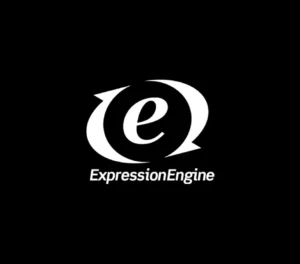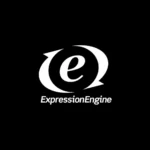If your organization’s ExpressionEngine website is underperforming, or you would like to optimize performance, there are a variety of strategies that can be employed.
As a content management system developed by EllisLab, ExpressionEngine, or as it is commonly called, EE, is a powerful tool for creating and managing websites. However, there are several factors that can slow down an ExpressionEngine website.
Slow websites underperform in search and paid ad campaigns, and overall reduce conversion rates, and create friction between your brand and users.
Performance optimization is important for any website, but for ExpressionEngine websites in particular, it can be especially critical. That’s because the CMS can be resource intensive and require a more robust hosting environment than other content management systems.
Taking just a few simple steps can make a big difference in the performance of your ExpressionEngine website. Before getting started, it’s important to understand the overall architecture of the website and how it interacts with the server.
Understanding what makes an ExpressionEngine website slow
The first step in optimizing the performance of your ExpressionEngine website is to determine which version of ExpressionEngine you are running.
Performance will depend on the version, as well as any additional modules or extensions that have been installed. Upgrading your version to the latest release can provide a significant performance boost.
ExpressionEngine websites can see varying levels of performance, sometimes with extremely long loading times, and this can be dependent on many factors.
The next steps, after you’ve ensured all modules and extensions are up-to-date and compatible with your current ExpressionEngine version, would be to look at some options for optimizing and boosting server health and performance. If you’re currently running an older or unsupported module, consider replacing it with a more modern solution or removing it entirely if no longer needed. The fewer active modules and extensions on your site, the better its overall performance should be; some may even be hindering rather than enhancing performance.

Slow ExpressionEngine website? 6 Key Areas to Address:
To ensure that your ExpressionEngine website runs as quickly and efficiently as possible, here are a few key concepts to keep in mind:
Choose the right hosting provider for your EE site
Choosing the right hosting provider is essential for ExpressionEngine websites, as the CMS can be resource intensive and require a more robust hosting environment than other content management systems. If you’re looking for a hosting provider that specializes in ExpressionEngine, look for companies that offer technical support specifically for the CMS and have experience working with the platform.
Caching is your friend
Caching is one way to improve page response time by keeping commonly requested pages stored in memory or on disk so they don’t have to be processed each time they are requested. ExpressionEngine has caching built in, but you can also use additional caching tools such as Zend Optimizer+ to further optimize your website’s performance.
Minifying resources is important
Minifying resources involves removing unnecessary characters and whitespace from HTML, CSS, JavaScript files that make up the page structure of your site. This results in smaller file sizes which will help decrease load time on pages with larger amounts of code or more complex designs.
Optimize your database often
The next step in optimizing Express Engine is to optimize your database. This includes ensuring that all tables have been optimized for speed using the database utility provided by EE, as well as performing regular maintenance tasks such as deleting old data records from tables and archiving larger ones for storage offsite.
Compressing files boosts mobile page speed scores
Compressing files is another way to reduce load times by reducing the size of data sent between server and client when a page is requested by using compression algorithms such as Gzip & Deflate for text-based content like HTML & CSS files or Brotli for binary formats like images and audio/video media. Additionally, compressing all outgoing responses from the server will further reduce page load times. ExpressionEngine has gzip built-in.
Reducing image file size
Reducing image size can also help improve page speed by lowering the amount of data that needs to be transferred each time a user requests a page with images. This can be accomplished through tools such as Photoshop or online services like tinyjpg and compressjpeg which allow you to resize, crop, optimize and compress your images before uploading them onto your ExpressionEngine website.
Query disabling
Disabling certain functionality is possible in ExpresisonEngine. The documentation includes examples for disabling a broad selection of functions. By disabling those modules you aren’t using, you can reduce server load, and free up resources for visitors.
Content Delivery Networks can really help
A CDN is an external network of servers located around the world that are used for delivering content more quickly by caching static files in multiple locations closer to users accessing those same files from different regions on their local networks. Using a CDN helps improve site performance significantly because it reduces latency & enhances throughput while offloading some resources from your own web server.
Minimize HTTP requests
Another way to improve performance of an ExpressionEngine website is by minimizing HTTP requests (the number of calls made by browsers when they load a page). You can reduce these requests via proper structural design and layout customization in each template, which will help keep code more organized and efficient on the front end so fewer resources are needed from the server side when loading pages.
These are just a few strategies for optimizing the performance of your ExpressionEngine website and should help you improve page load times & overall user experience when accessing your site.
Testing the Performance of Your ExpressionEngine Website
Before you can really improve the speed and load times of your website, you need to understand how fast or slow your website is for users in the real-world. Using tools like Page Speed Insights and YSlow, you can identify critical problems that may be contributing to the slow speed of your ExpressionEngine site.
Best tools for testing the speed of your EE website:
EE may be known for its flexibility and scalability, but ExpressionEngine can suffer from slow loading times, which can hurt the user experience. To ensure your website is running as efficiently as possible, it is important to test its performance and identify areas for improvement.
Top ExpressionEngine Caching Add-ons
Best options for ExpressionEngine cacheing add-ons:

